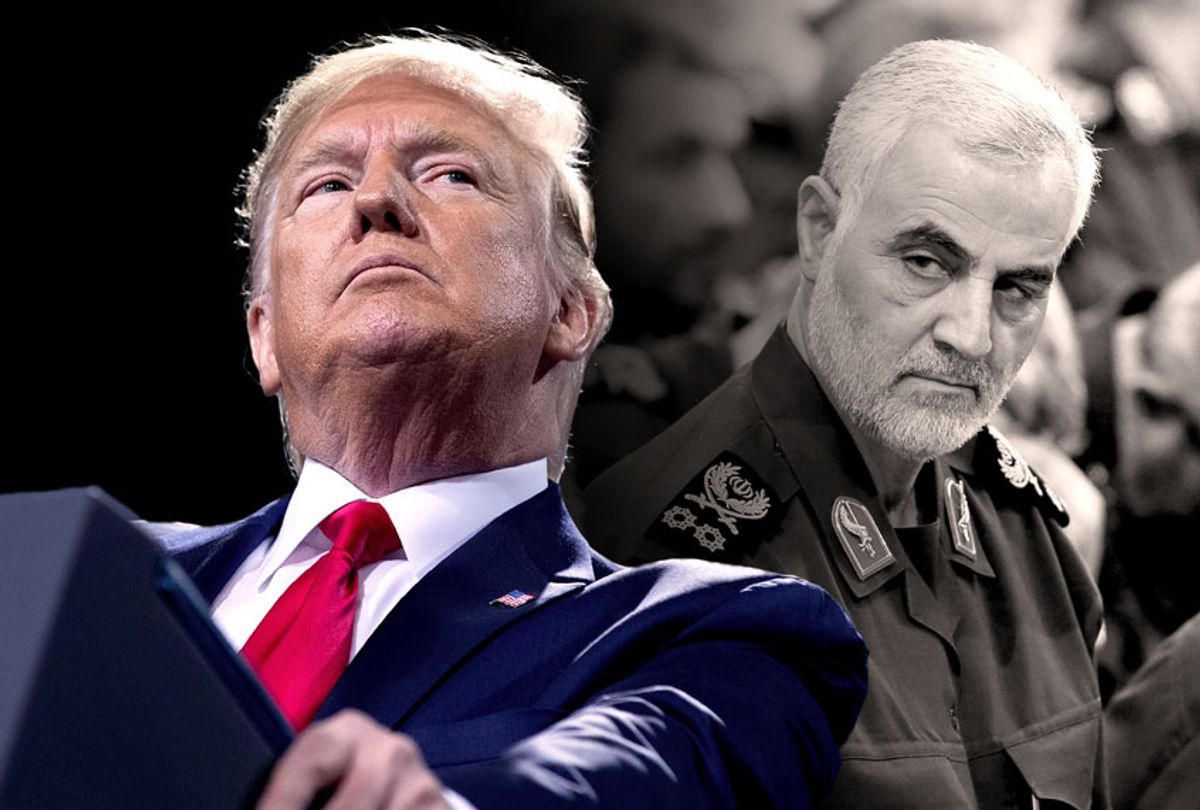It’s much more than a massive escalation of war tensions in the Middle East that Donald Trump achieved in ordering the single rocket attack that killed Qassem Soleimani.
By killing the top Iranian military commander and hated foe, intentionally or not, Trump managed in his single swath of a sword to set an already uneasy world on edge.
Just as we were suddenly supposedly withdrawing all U.S. troops from the region, we’re sending thousands more.
Everywhere we look, the fundamental questions seemed widespread and the same: While taking out Soleimani has been a longtime goal, are Americans, in fact, safer today?
Is there a strategy here? Or did Trump just act without thinking through the effects? Does this move us any closer to a renegotiation to end Iran’s nuclear weapons development?
Consider these other effects from the same strike:
- Retaliation. Iran is promising to strike back, of course, and targets range from American servicemen; isolated bases in Iraq; ships in the Persian Gulf; embassies or even U.S.-based targets; U.S.-owned hotels or targets in Europe, Israel, Saudi Arabia or others, including targets of cyberattacks. Of course, Trump took the action without informing or preparing these allies, each of whom is undergoing internal political unrest, just as Trump himself is dealing with impeachment.
- Reasoning. The U.S. justifications for the attack switched during the day from stopping prospective attacks on American troops in Iraq to payback for past aggressions against U.S. troops. The president just issued tweets that eluded understanding, though was said to be waiting for a campaign rally last night to talk about it. Heading off prospective attacks is a legally recognized international justification for such an attack, whereas punishment is not. Public opinion is something else.
- Iraq. By killing an Iranian leader on Iraqi soil without the knowledge of the Iraqi government, it is practically an invitation to the Iraq legislature to order the United States to withdraw remaining U.S. troops from the country. Indeed, that was already a possibility from the earlier attacks on an Iranian-leaning militia earlier in the week.
- Nuclear agreement? With European allies cut off from U.S. thinking and Iran now busily planning retaliation, it is impossible to see the Trump plan of extreme sanctions bringing about a new agreement to swear off nuclear weapons development – and to back off its longtime deployment of proxy militias throughout the Middle East.
- Congress. Trump further ruptured relations with Congress by not briefing anyone about the pending attack. Naturally, the public reaction was almost totally partisan, with Democrats pointing out that the move may lead to spiraling conflict, even terming the attack “reckless,” and Republicans lining up behind perceived toughness from the White House and saying killing the Iranian military leader was long overdue. Previous administrations had decided against moving against Soleimani because reactions directed by Iran would be widespread.
- Oil prices. They zoomed up overnight. Meanwhile, Sen. Lindsey Graham, R-SC, who said he was briefed while with Trump in Florida this week, was promoting bombing Iranian refineries, as if that will help.
- Are we targets? Sitting in New York City, it seems totally reasonable to think we will be a target. Major cities immediately started deploying more police to possible soft targets though most commentators readily acknowledged that they have no idea where and how Iran will respond.
- No strategy. All sources seemed to raise questions about whether we have tactics but no strategy in play here, though Fox News was considerably more supportive of the decision to assassinate a foreign leader. The comments from former NATO commander James Stavridis was typical: “Tactically, I’m glad he’s gone. Strategically, however, we are pouring gasoline on a smoldering fire with no structure or strategy for where we’re going to take this thing next…”
- Donald Trump. At the center of all the questions was worry, spoken or not, about an impulsive Trump himself – about his ability to hear and process advice from intelligence sources, about the ability of his administration to provide substantial enough diplomacy to set and follow a strategy, about his ability to communicate a unifying message when he acts as a singular representative for foreign policy decision-making. Twitter was filled with opinions that a president under pressure of impeachment was making a “Wag the Dog” kind of move to cover his own problems. Indeed, the idea that we can’t impeach a president as we face international conflict found some social media support.
It’s a lot to happen simultaneously.
This attack does not come without context. The Saudis are making war against Yemenis, in a proxy war against Iran for dominance in the region. Turkey is playing hardball with its military, sending troops across the border into Syria, and now into Libya, where there is another proxy war going on. Syria is a total mess, with millions of civilians left adrift in a refugee crisis. Israel, America’s partner, is undergoing a political and constitutional crisis of its own. And North Korea is threatening the resumption of nuclear weapons development of its own.
It is a dangerous time, requiring good thinking for complicated matters.
It is not a time for slogans or tweets of American flags.




Shares